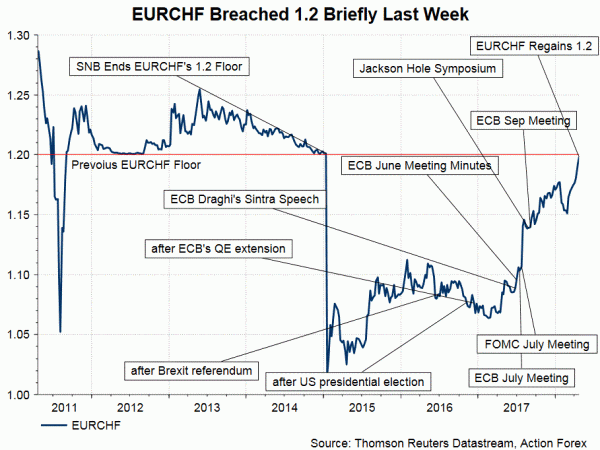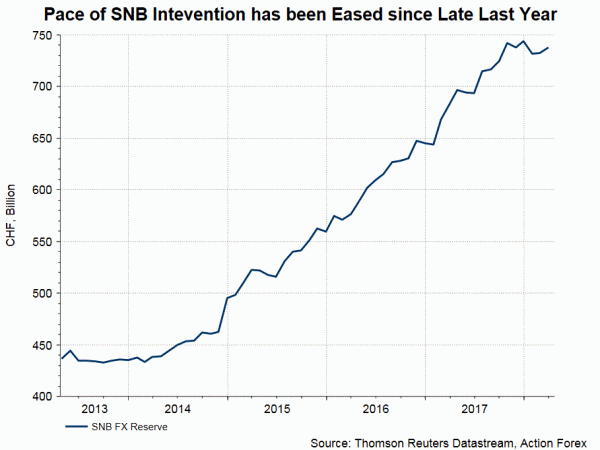EURCHF remains in consolidation after briefly breaching 1.2 last Friday. We see policy divergence, US sanctions against Russia and the upcoming referendum on SNB’s power are key reasons for the recent weakness in Swiss franc. Despite the symbolic meaning – SNB set 1.2 as the floor of EURCHF in September 2011 before abruptly abandoning is in January 2015, we do not believe the central bank would consider tightening its monetary policy just because the 1.2 level is breached. Indeed, Chairman Thomas Jordan has affirmed that the FX market is “fragile” and there is no plan to change to monetary policy for the time being. We do not feel surprised to see further downside on Swiss franc.
SNB has been maintaining negative interest rates for years. In December 2017, it again kept the sight deposit rate unchanged at -0.75%, while the target range for the three-month Libor stayed at between –1.25% and –0.25%. The central bank reiterated that it would “remain active in the foreign exchange market as necessary”, while “taking the overall currency situation into consideration”. The pledge to keep the monetary policy accommodative is contrasted with the major central banks. For instance, the Fed has raised the policy rate for 6 times since 2015. The market expects two or three more hikes this year. Although the ECB has continued with asset purchases, the scaled has been reduced for a few times. The market expects it to announce further scale down, or even an end, of the current program in coming months. Policy divergence, reflected in the yield spreads between Switzerland and other economies, has been a key reason for funds to leave Switzerland for higher yields elsewhere.
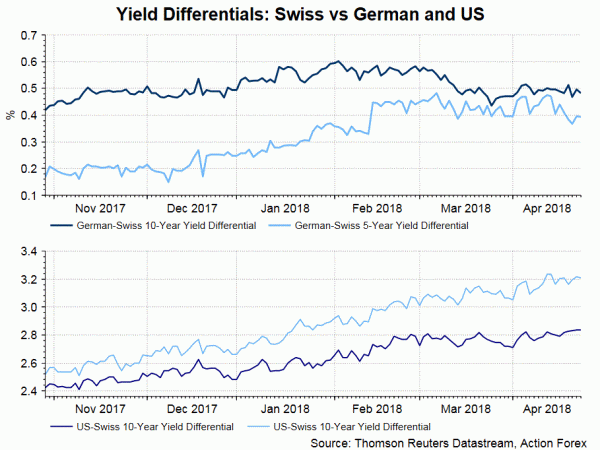
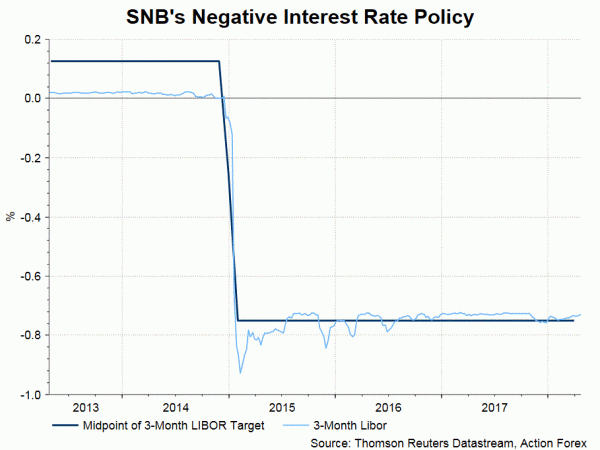
Sanctions against Russia
US sanctions against Russia in response to the latter’s support for Syria have not only caused massive selloff in Russian equities and currency – ruble, but also triggered investors to repatriate capital sheltered in Switzerland, top destination of Russian capital outflow. Statistics show that about 14% of Russia’s cross-border outflow went to Switzerland last year, tripling that to the US.
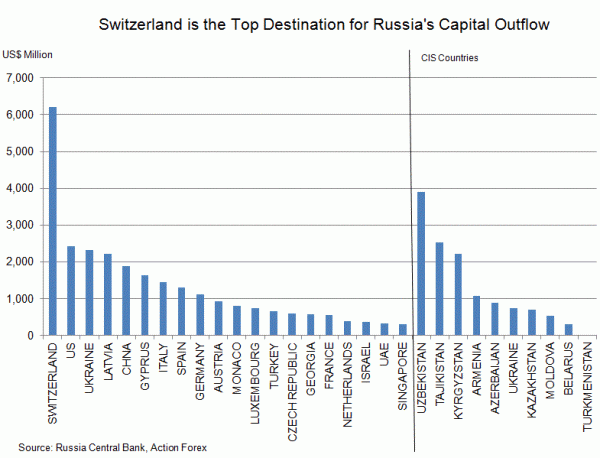
SNB Referendum
On June 10, a referendum would be held for Swiss citizens to vote on whether only the central bank is allowed to create money. The SNB, the Federal Council and the Swiss parliament have released statements to oppose the initiative – the Vollgeld Initiative or the sovereign money initiative. According to SNB, “acceptance of the initiative would have serious consequences for the structure and the stability of the financial system, as well as the monetary policy of the SNB, and plunge the Swiss economy into a period of extreme uncertainty”. While it is expected that the chance of a success for the pro- Vollgeld camp is low, this might cause some sorts of volatility in Swiss franc as the referendum is getting close.
Although franc’s weakness might persist for weeks, or even months, it is unlikely that SNB would adjust its monetary policy. At an interview last week, SNB chairman Thomas Jordan indicated that Swiss franc is moving in the “right direction” after significant overvaluation for years, though he cautioned that the current FX movement is in a “relatively fragile situation”. As such, the central bank would remain “very prudent at this point”. He added that “it’s not the time today to talk about changing monetary policy” and he is “convinced that the current monetary policy is still necessary”.

